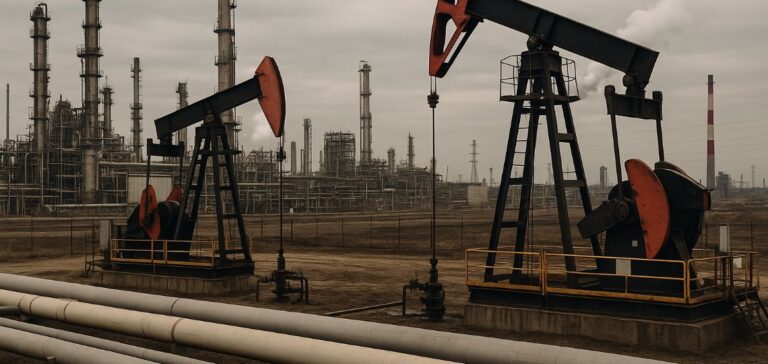Russia plans to bring its oil production back to a stable level of 10.8 million barrels per day (b/d) in the coming years, according to statements by Deputy Prime Minister Alexander Novak published on May 12 in the journal Energy Policy. The increase would be supported by a rebound in global demand and fiscal reforms aimed at boosting domestic sector investment.
Targeted fiscal investments and technological access
Alexander Novak emphasised that the plan relies on technological modernisation and the increased exploitation of so-called complex resources. “This requires the timely replenishment of the resource base, above all by the addition of a large volume of hard-to-produce resources and the use of more up-to-date technology,” he said. He also noted that 60% of Russia’s oil reserves are located in abandoned, flooded or technically complex fields.
According to him, reforming the fiscal system is essential to making these new types of fields profitable. The government therefore aims to encourage resource development in regions such as the Arctic, East Siberia and the Russian Far East. Novak claimed that the production recovery could also have a structuring effect on the national industry.
Ongoing doubts over recovery potential
However, several external experts remain sceptical. According to analysts at S&P Global Commodity Insights, the production decline since 2022 cannot be attributed solely to the quotas of the Organisation of the Petroleum Exporting Countries and its allies (OPEC+), but also to falling investment and limited access to international technologies due to economic sanctions.
In March 2024, Russian crude oil output was estimated at 8.97 million b/d, compared with 9.42 million b/d a year earlier, according to the OPEC+ survey by S&P Global Commodity Insights. Including condensates and natural gas liquids (NGLs), total Russian output for 2024 is estimated at 10.74 million b/d.
OPEC+ and global market share
In this context, Novak defended Russia’s continued membership in the OPEC+ group, stating that production quotas had helped stabilise prices and increase the country’s oil revenues. He also indicated that OPEC+ member countries could see their share of the global oil market rise from 49% to 52% by 2050, if demand continues to grow.
Novak’s outlook echoed the statements of Saudi Aramco Chief Executive Officer Amin Nasser, who also forecast steady demand growth through 2025. Nevertheless, analysts remain cautious about Russia’s actual ability to reverse its downward production trend without broader access to Western technologies, which major foreign oil companies are still reluctant to provide.






















